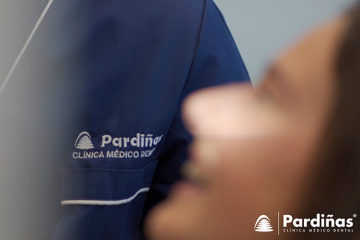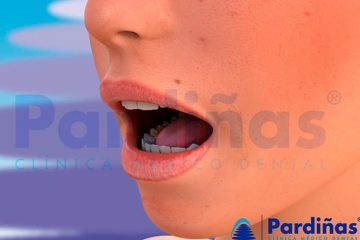Pulpitis is an inflammation of the dental pulp or nerve of the tooth, which is the vascular and nervous component that is inside the tooth. This inflammation produces pain from stimuli such as cold, heat, pressure and chewing, or even continuous pain.
What is tooth pulp?
As we anticipated, the pulp is the soft tissue that contains the nerves, blood vessels and connective tissue of the teeth. It is located inside it and is covered by dentin and enamel, two protective layers. The pulp extends from the crown (the visible part of the tooth) to the roots and serves to connect this tissue with the rest of the body, allowing it to nourish itself. Like other tissues in the body, the pulp can be damaged, giving rise to two types of ailments:

Reversible Pulpitis
Reversible pulpitis usually presents as an acute pain that lasts for a moment and disappears, usually with a cold stimulus. It is a mild inflammation of the pulp due to agents that damage the pulp such as:
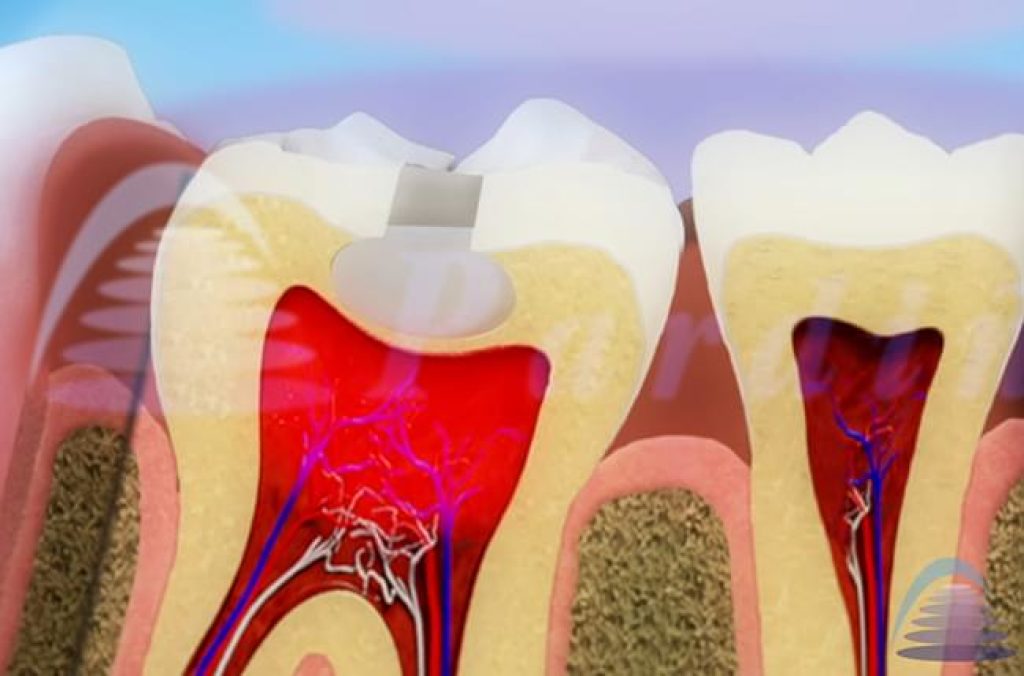
Causes of reversible pulpitis
Reversible pulpitis can be caused by several reasons:
- Caries that have not reached the nerve: if the pulpitis has been caused by cavities, the treatment will go through the removal of it and the placement of a filling or restoration.
- Dental erosion: dental erosion is the progressive loss of enamel, a loss that can lead to affecting the tooth pulp.
- Filling near the nerve of the tooth: the perforation made by a dentist when placing a filling could affect the nerve in the event that this filling has been placed near it.
- Superficial fracture of a tooth: a fracture in the tooth enamel layer can expose the dentin, with its consequences.
- Dental sensitivity: tooth sensitivity can also be one of the possible causes of reversible pulpitis.
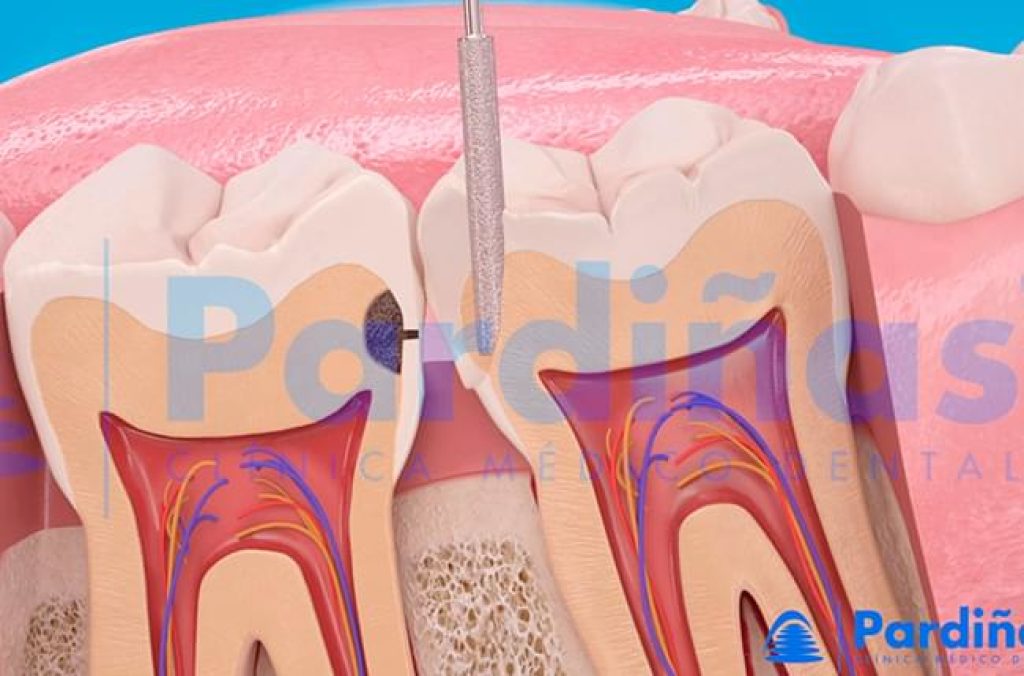
Treatment of reversible pulpitis:
As its name suggests, this type of pulpitis is reversible and the treatment will consist of eliminating the cause that triggered the inflammation of the pulp. In general, the solution usually involves the realization of a filling or restoration with composite, although other types of interventions may be necessary. It is essential to treat the cause of this inflammation as soon as possible to avoid greater consequences.
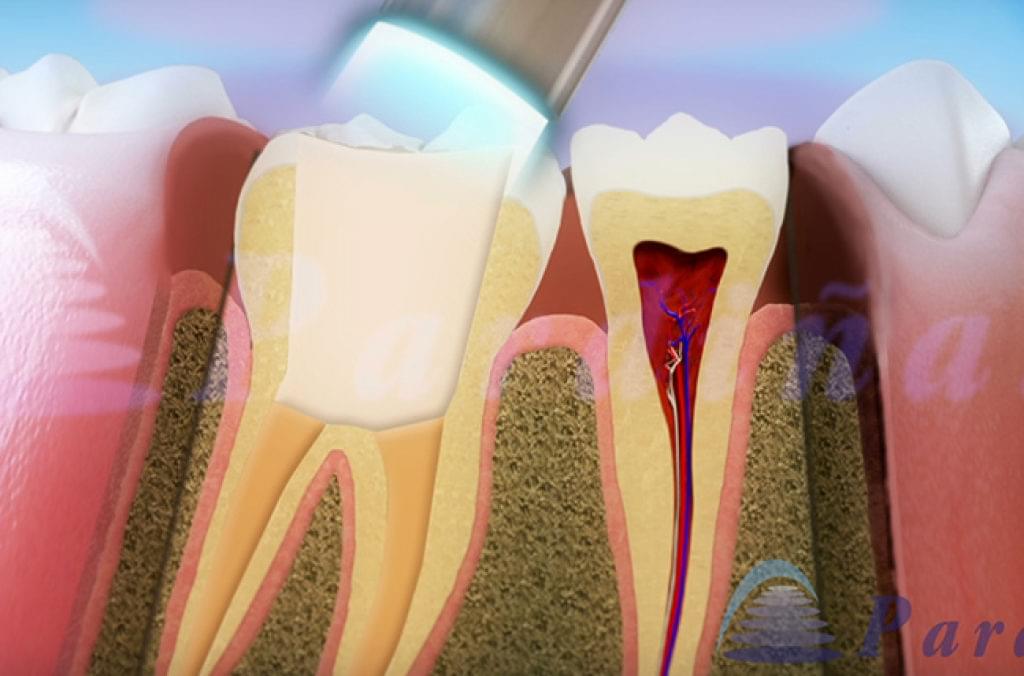
Irreversible pulpitis
We speak of irreversible pulpitis when there is an intense and definitive inflammation of the dental pulp. Although in some cases it does not cause any type of symptoms, in general it causes intense and very constant pain.

Causes of irreversible pulpitis:
The causes of this type of affection can also be diverse:
- When the stimulus causing pulpitis is not eliminated in time, the pulp can become irreversibly affected. Normally when the tooth responds to a heat stimulus that does not stop, the pulp is usually irreversibly affected.
- It can also occur in cases of very deep caries where a lot of dentin has to be removed and it is very close to the pulp or has even reached it.
- Another reason for the development of irreversible pulpitis may be a limitation of the blood supply to the pulp, caused either by trauma, orthodontic movements, etc. This necrotic pulp can become contaminated with bacteria and degradation products and produce a bad odor, discoloration and bad taste in the mouth.
Treatment of irreversible pulpitis:
As we have already mentioned, the pulp cannot be recovered if it has been irreversibly affected. Therefore, the only solution is to carry out a root canal treatment or in cases where the destruction is so great and the tooth cannot be restored, tooth extraction will have to be performed.

